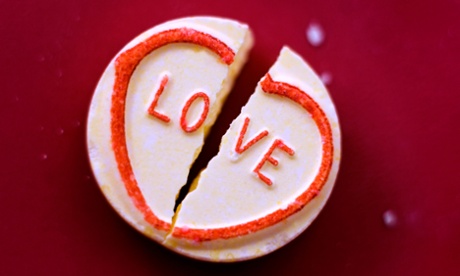
I watched a lot of Disney films as a kid so by the time I hit my teens, I had falling in love sussed. Eyes meeting across a crowded room? Check. Stroll in to the happy forever after? Check. Family, friends, random strangers... all smiles because everyone loves people in love, right?
Hmmmm.
Lucky, lucky people who nail the perfect relationship first time. For the rest of us, we get to muddle on, gradually learning what we do and don’t want; the behaviour we’re prepared to accept and where to draw the oh-no-you-don’t line. And the outside world gets a big say too, because relationships don’t exist in a bubble, and when friends, family and random strangers aren’t smiling on the pair of you, it’s an isolating and miserable experience.
In The History Boys, Alan Bennett describes that moment when you read a page and “it’s as if a hand has come out, and taken yours”. Knowing someone, somewhere has felt the same as you do now is the best kind of comfort. We desperately need other people’s stories to know we’re not alone and YA fiction has that power to reach out to us when we need it most.
Authors today can write books that 20, maybe even 10 years ago, would’ve been way too edgy for publication. Tess Sharp, Liz Kessler, David Levithan, Jandy Nelson, Bill Konisberg and Lisa Williamson have recently placed LGBTQ characters and their relationships at the heart of their stories. Robin Talley’s powerful The Lies We Tell Ourselves, set in 1959 Virginia, goes a step further with a interracial gay couple. As well as being a page-turning read about desegregation, it’s such a beautiful love story. Sarah and Linda face massive opposition but the novel ends on an upbeat note.
And is it only readers who identify as LGBTQ who enjoy it? Course not. That’s the beauty of YA literature; it persuades everyone to consider the issues raised because we’re all affected by them. So whatever our individual blend of sexuality, gender, age, race or culture, these books make every single one of us think about the labels we stick on each other. Once upon a time, The Lies We Tell Ourselves would have been viewed as ultra-controversial, today it’s seen as celebrating diversity. That’s the brilliant job YA has done in equipping us to recognise the infinite variations of “normal” relationships in the real world.
Of course, the flipside is some relationships are always controversial because they’re always totally unacceptable. But that doesn’t mean they should be ignored, and YA provides a safe environment in which to read about how they could develop while flagging up why they shouldn’t. In the words of the godfather of realistic YA, Melvin Burgess:
What better way to explore the world than through a book, when you can come back to the armchair you were reading in with no harm done.
The typical accusation gritty-themed YA gets is it romanticises or normalises dodgy situations, making teens behave inappropriately. I don’t agree. I think it’s massively patronising to imagine a 14-year-old can’t learn about a controversial issue without wanting to live it. Gemma and Tar in Burgess’s Junk hardly make heroin addiction out to be a barrel of laughs while Tabitha Suzuma’s hugely successful Forbidden has a brother-sister relationship at its heart; definitely not for the squeamish. But does anyone believe it inspires its fans to act the same way?
Teacher-pupil relationship news headlines appear with worrying frequency and in Me and Mr J I wanted to show how this taboo could (and frequently does) happen. The book is narrated solely from the besotted main character’s perspective because it means readers join in her journey to understanding that “just because something feels right, doesn’t mean it is right.” Not everyone gets the Disneyfied version of love and if exploitative relationships get swept under the carpet, what message does that send if you find yourself trapped in one? That you’re completely alone?
Love is often messy, chaotic and confusing. That’s why YA fiction needs to give every aspect of it a good airing, even when it makes for uncomfortable reading. Get it out in the open, show what goes on then look at age-appropriate solutions.
It is really, really hard to write about controversial topics because you do it knowing some people will have an issue with what you say. But I believe readers deserve books that tackle difficult subjects head on and if YA is to reflect the real world, then it’s got to include characters who make spectacularly bad decisions. That’s why I think it’s important YA continues to discuss controversial subjects for as long as teenagers continue to have them.
Rachel McIntyre’s Me and Mr J is available at the Guardian bookshop.

